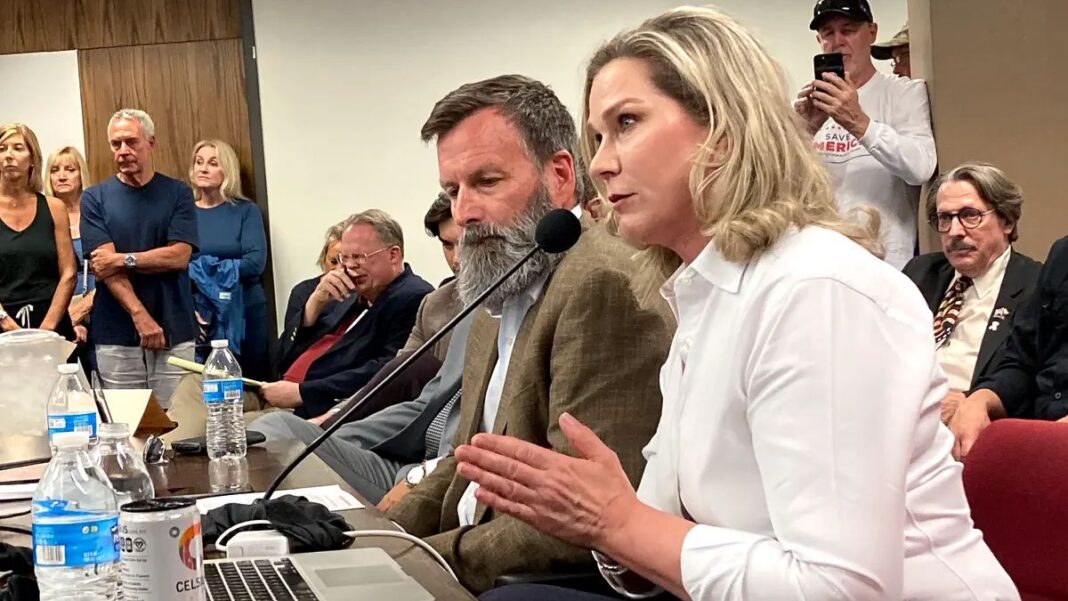Two analysts whose work was used to empower citizens to challenge voters in Georgia worked hard to generate reliable data, one testified on Nov. 3.
One of the individuals who created the data to challenge thousands of voters during Georgia’s controversial 2020 election and subsequent runoff testified to the pains taken to ensure the lists were fair.
Derek Somerville said he and data analysis partner Mark Davis used multiple databases and levels of comparison to identify Georgia voters who didn’t live where they were registered to vote and then to exclude many who were, in fact, legal voters.
They are two of six individuals named, along with the True The Vote organization, in a federal lawsuit alleging that their work intimidated minority voters and was a violation of the 1965 Voting Rights Act.
They are being sued by Fair Fight, an organization founded by two-time Democratic gubernatorial candidate Stacey Abrams to fight voter suppression. Fair Fight seeks to stop True The Vote and the co-defendants from any election integrity work in Georgia. Their non-jury trial in Gainesville, in Georgia’s Northern District, before Judge Steve Jones, began on Oct. 26.
Mr. Somerville returned to the witness stand on Nov. 3 after testifying the previous day. He testified that he and Mr. Davis compared state-published voter rolls, absentee ballot rolls, post office change of address records, and geospatial data.
They first created a list of 364,000 voters who had moved from where they were registered to vote. They then used that and other data to “funnel” it down to 39,000 voters for whom there was “probable cause” to believe they were no longer entitled to vote where they were voting.
He described some of the “funnels” they used to exclude people from the probable cause list. Those who move within 30 days of an election may vote at their old address. They went back 18 months, but no more, because federal law requires states to review and purge their rolls every two years, and that’s done after general elections.
By Dan Berger
Read Full Article on TheEpochTimes.com







